Israeli spyware Pegasus used to spy on staff of banned Palestinian groups: Report
The Israeli spyware Pegasus was used to spy on the staff of Palestinian civil societies recently outlawed by the Tel Aviv regime, an investigative report by a European rights group has revealed.
Last month, Israel’s Minister of Military Affairs Benny Gantz said the ministry had designated the six prominent Palestinian civil society groups, including Addameer, al-Haq, Defense for Children Palestine, the Union of Agricultural Work Committees, Bisan Center for Research and Development, and the Union of Palestinian Women Committees, as “terrorist organizations.”
The move drew sharp criticism from several human rights watchdogs. The Palestinian resistance movement Hamas, the Arab League, and several American legislators also spoke out in denunciation of the designation.
Back in July, a group of 17 media organizations revealed that Pegasus, developed by the Israeli hacker-for-hire company, NSO Group, targeted human rights activists, journalists, lawyers and leading political figures, including the French president, across the globe.
Last week, the US Department of Commerce blacklisted the Israeli surveillance company, which has so far exported Pegasus to 45 countries around the world.
Smartphones infected with Pegasus can be turned to a listening device. In addition, the spyware allows the user to read the target's messages, look through their photos, track their location and even turn on their camera without them knowing.
On Monday, the Irish-based rights organization, Front Line Defenders, also known as the International Foundation for the Protection of Human Rights Defenders, said in a report that six devices used by Palestinian rights activists “were hacked with NSO Group's Pegasus spyware.”
Three of the six targeted individuals belonged to Palestinian rights groups outlawed by Tel Aviv last month.
The report added that two of the targeted individuals were American citizen Ubai al-Aboudi, the head of Bisan, and French national Salah Hammouri, a researcher at Addameer.
“The exposure of illegal spying on peaceful Palestinian human rights defenders, coming on top of baseless claims about terrorism against internationally respected human rights organizations, emphasizes how important is the continued support of the international community for their legitimate work,” said Front Line Defenders Executive Director Andrew Anderson.
“Surely this episode will serve as a stark warning against any deployment of the term 'terrorist' against any human rights defender anywhere in the world, and renew efforts to reign in the use of spyware against human rights defenders, journalists and other civil society activists,” he added.
Toronto's Citizen Lab is one of the rights organizations that confirmed Pegasus had been used to hack the Palestinian activists' devises.
Separately on Monday, the al-Haq Organization for Human Rights, one of the banned groups, called on the United Nations to investigate revelations by the Front Line Defenders that Pegasus were used against Palestinian rights activists.
“We call on the United Nations to launch an investigation to disclose the party that stood behind using this program on the phones of human rights activists, a move that put their lives at risk,” said Tahseen Elayyan, a legal researcher at al-Haq.
It is not yet clear who put Pegasus on the phones of the six Palestinian rights activists, or if other phones might have been hacked.
Mohammad Bakri, Palestinian director who exposed Jenin massacre, dies at 72
Iran president offers Christmas, New Year greetings to Pope
‘Normalization not in Iraq’s lexicon’: PM Sudani vehemently rejects ties with Israel
Hamas releases Al-Aqsa Flood narrative, says Palestinian resistance ‘cannot be erased’
VIDEO | Press TV's news headlines
Israel targeted radiopharmaceutical facility in first attack on Isfahan: Iran nuclear chief
Israel carries out new strikes across Gaza in latest ceasefire breach
New maps show Israel seized 10% more territory than Gaza’s ‘yellow line’


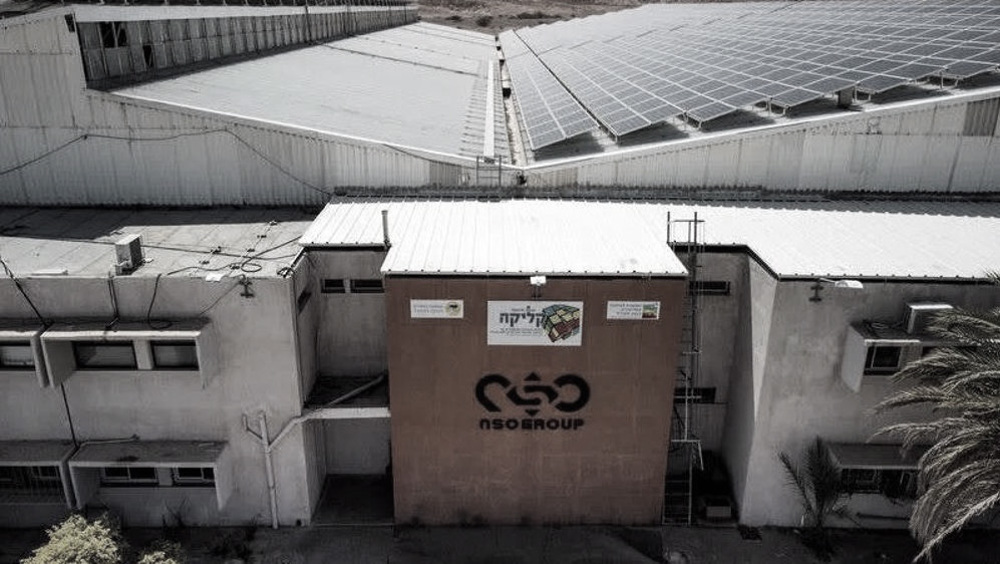

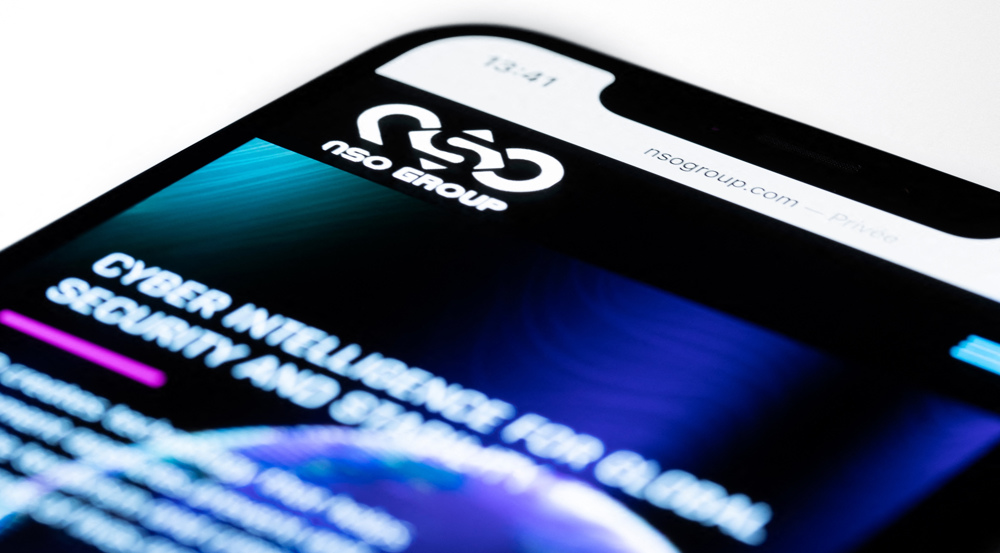

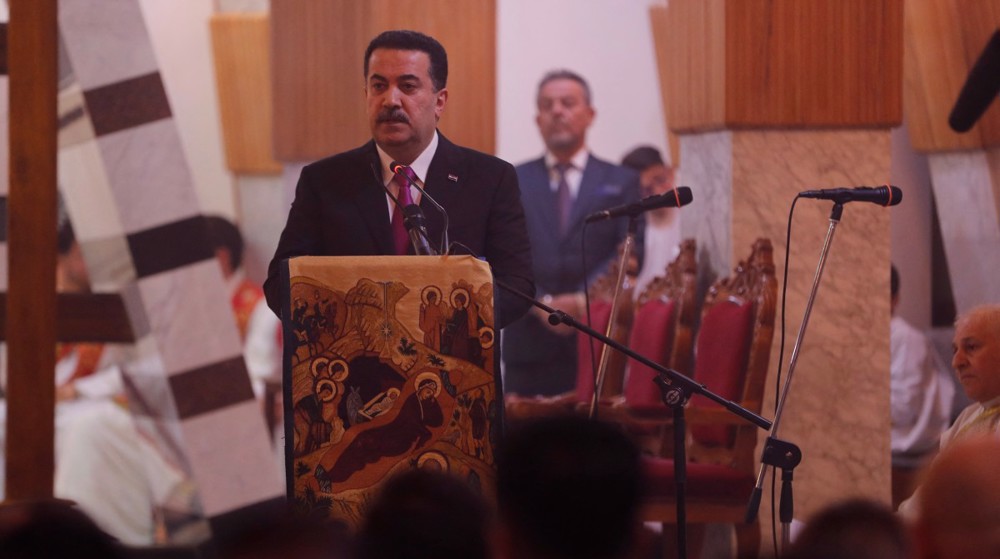





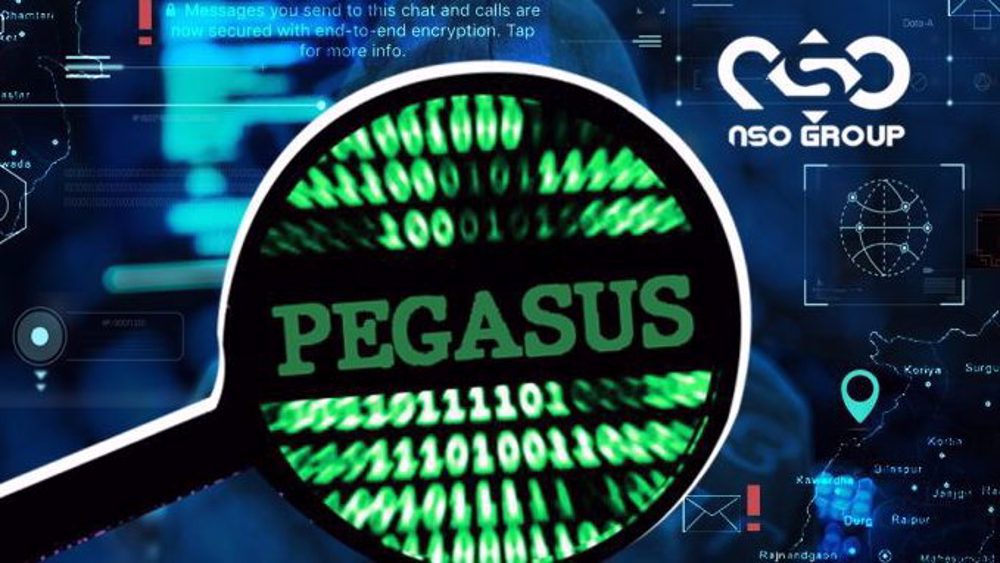

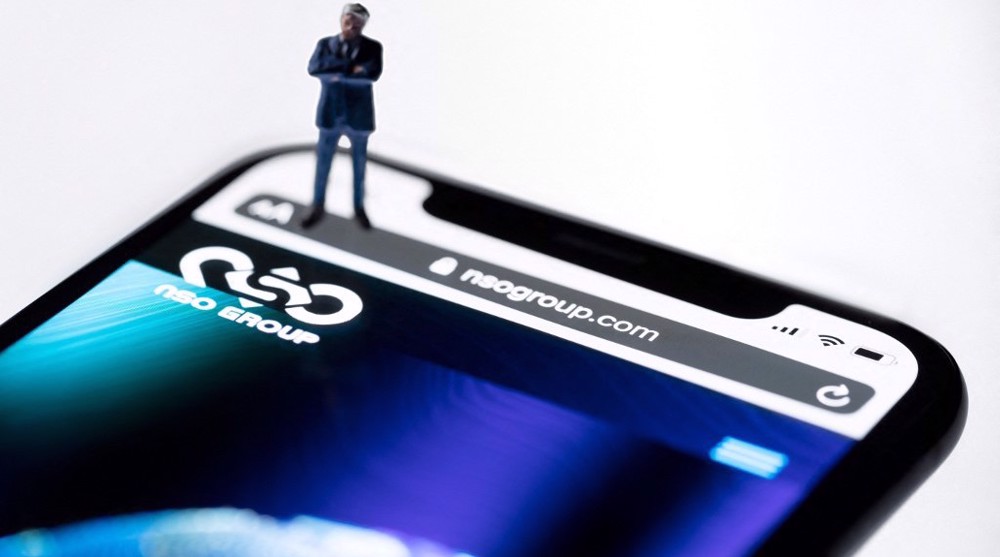

 This makes it easy to access the Press TV website
This makes it easy to access the Press TV website